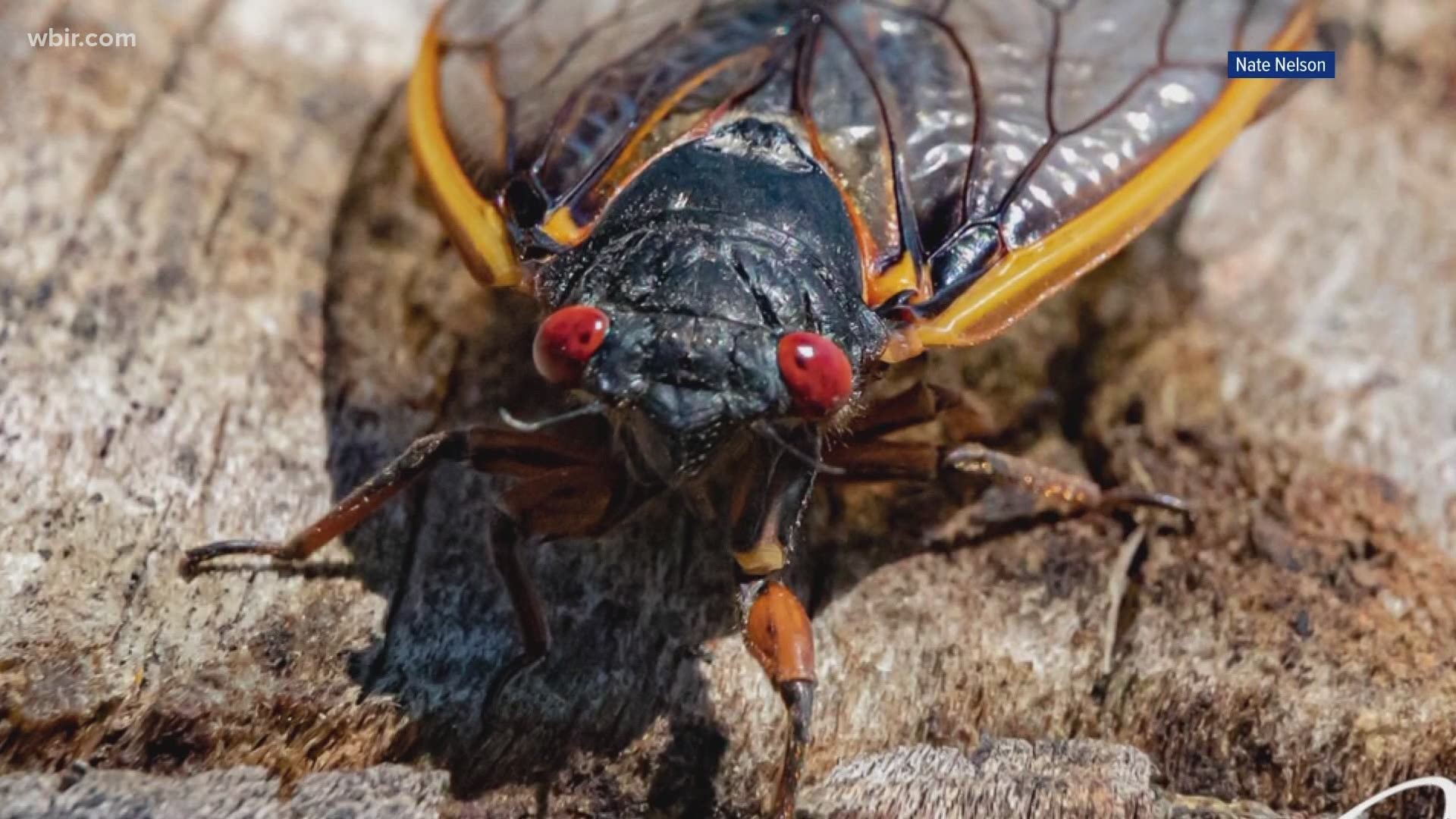KNOXVILLE, Tenn. — Get ready East Tennessee, millions of cicadas are headed our way. Experts said it will be the largest number of cicadas the area has seen since 2004.
A specific type, Brood X, is reemerging after 17 years.
However, we've got some time.
You may have seen some posts on social media that claim the cicadas will start emerging when it hits 64 degrees, but that has nothing to do with the air temperature.
Neal Denton with UT's Agricultural Extension said the cicadas won't come out until the soil is warm enough, and that won't be until May or June.
Experts said that once they're here, it'll be hard to go anywhere without hearing them.
"Only the males make the racket. They make all the noise, it's a chorus," said Dr. Frank Hale with UT Extension. "It’s a part of being in Tennessee, it’s a part of nature. It's one of the more fascinating insect things you'll ever see."
He said the cicadas will only be around for six to eight weeks. However, those are weeks people will spend listening to buzzing and rattling.
"These look like orange-red eyes, red veins on the wings."
When we last saw them in 2004, data shows these cicadas were primarily in East Tennessee. They were also scattered in some Middle Tennessee counties.


They'll be back in the same spots this year.
It's hard to know exactly how many will show up, but Hale said it's a lot.
"In each tree, there could be hundreds of cicadas," he said. "Then you think of how many trees in a forest. Hundreds, thousands and just start multiplying."
While they may look scary to some, they won't cause any harm to people. However, Hale cautions people with new trees to add protection so that they aren't hurt by the bugs.
"They'll cause tiny slits in the twigs and oftentimes that will cause them to brown up, leaves turn brown and break from the tree," he said.
He suggests covering it with cheesecloth until the little critters are gone. When they do go, there are benefits for the nature around them.
"They decompose and all their carbon, nitrogen and all the elements in their bodies will wash down into the holes and roots and give a boost of fertilizer to the whole forest," he said.
He also said if you're planning an outdoor wedding during their stay here, plan on some extra guests attending.
"It'll be so loud you won't be able to hear the 'I do's,'" he said.
Once the cicadas die this year, East Tennessee won't see this species again until 2038.

